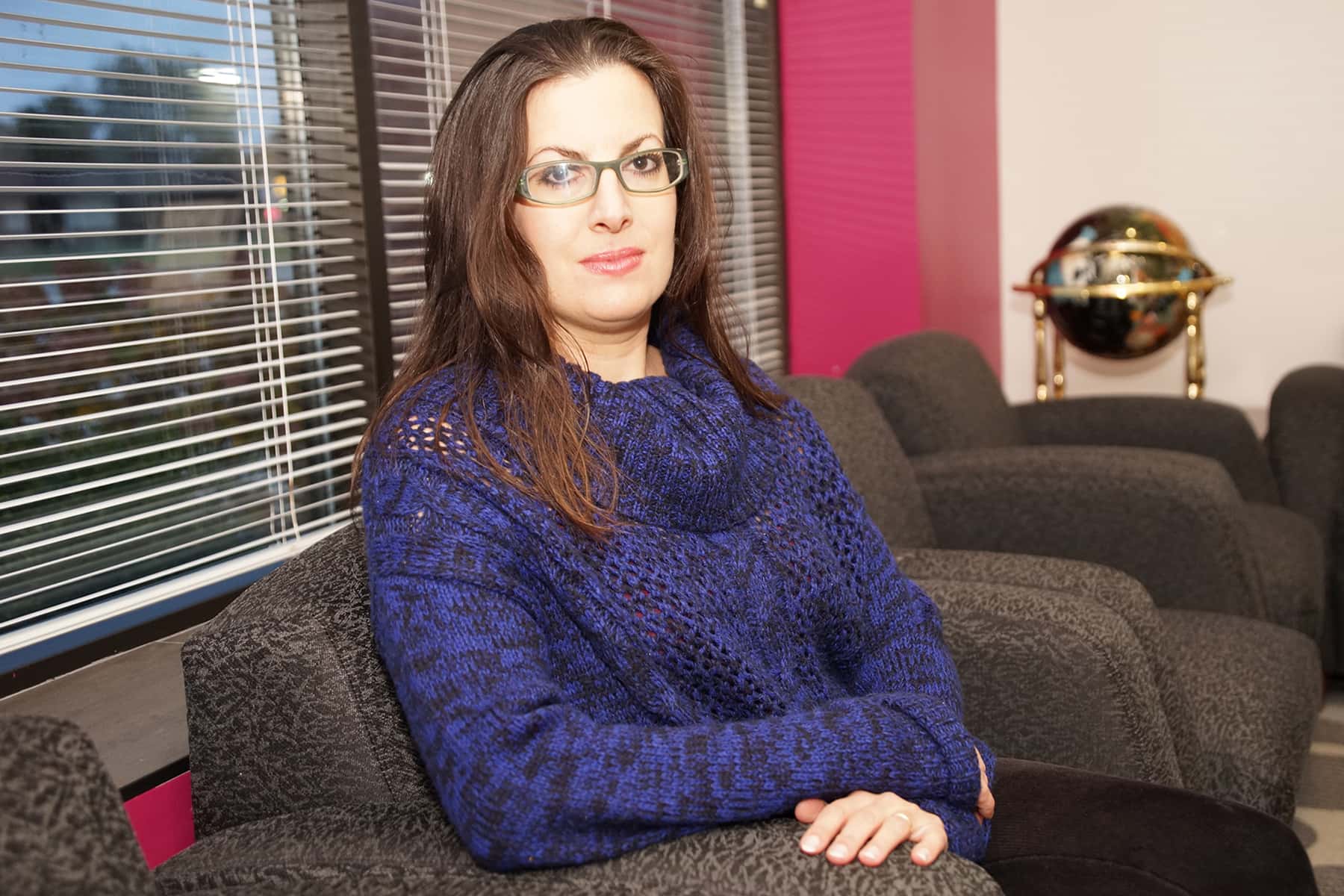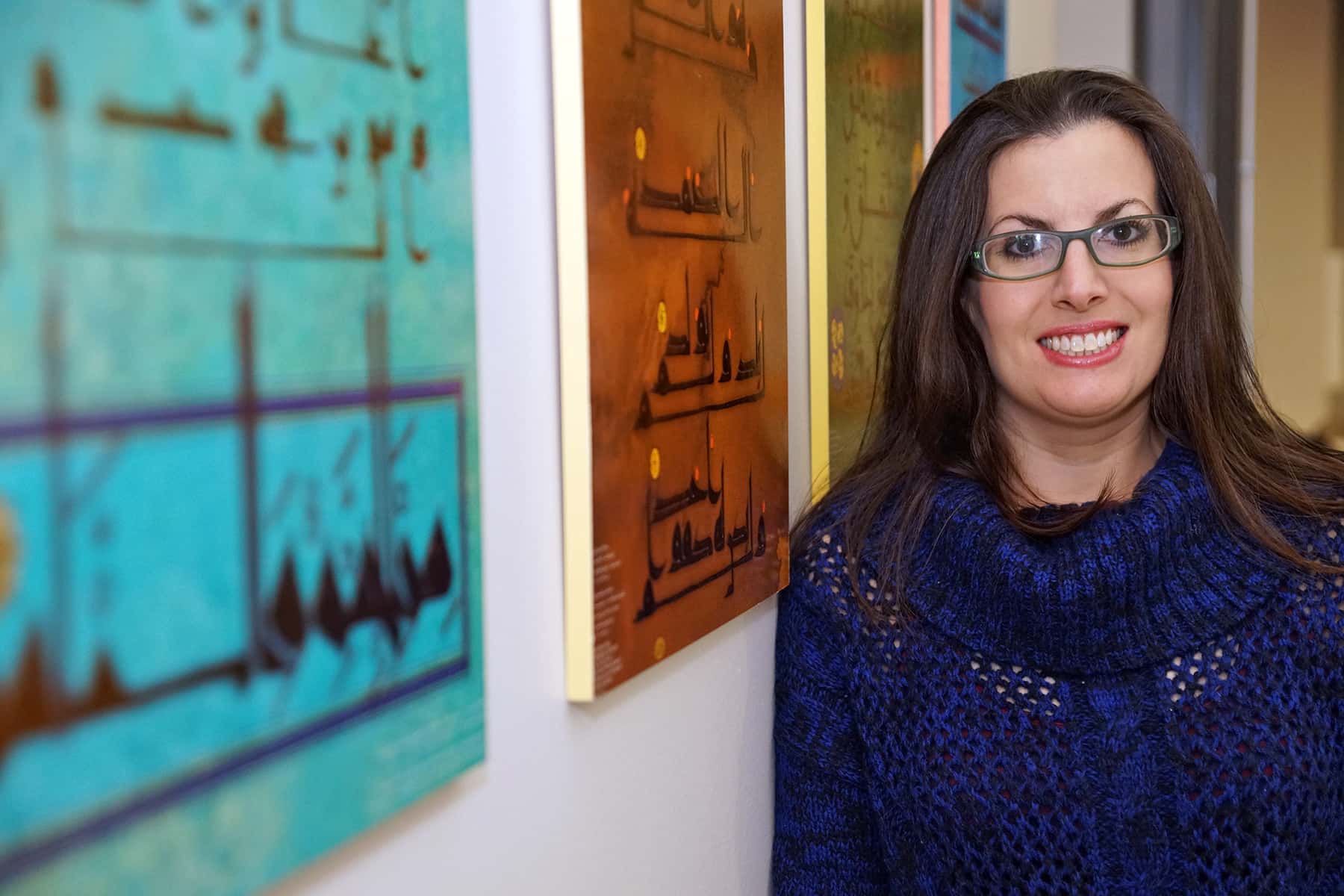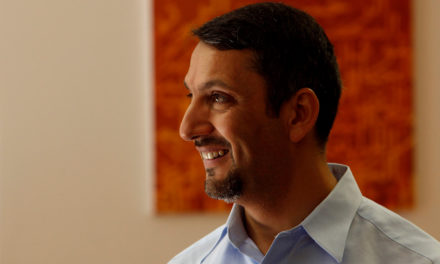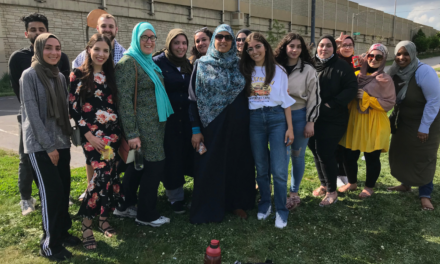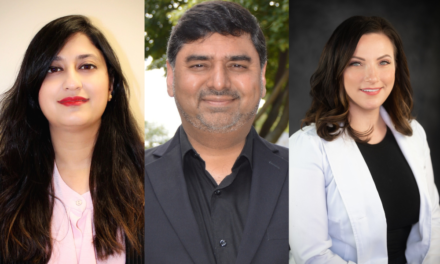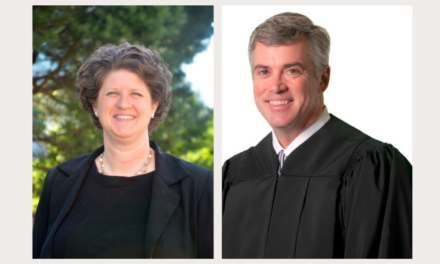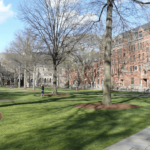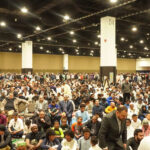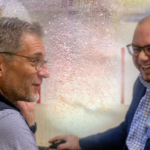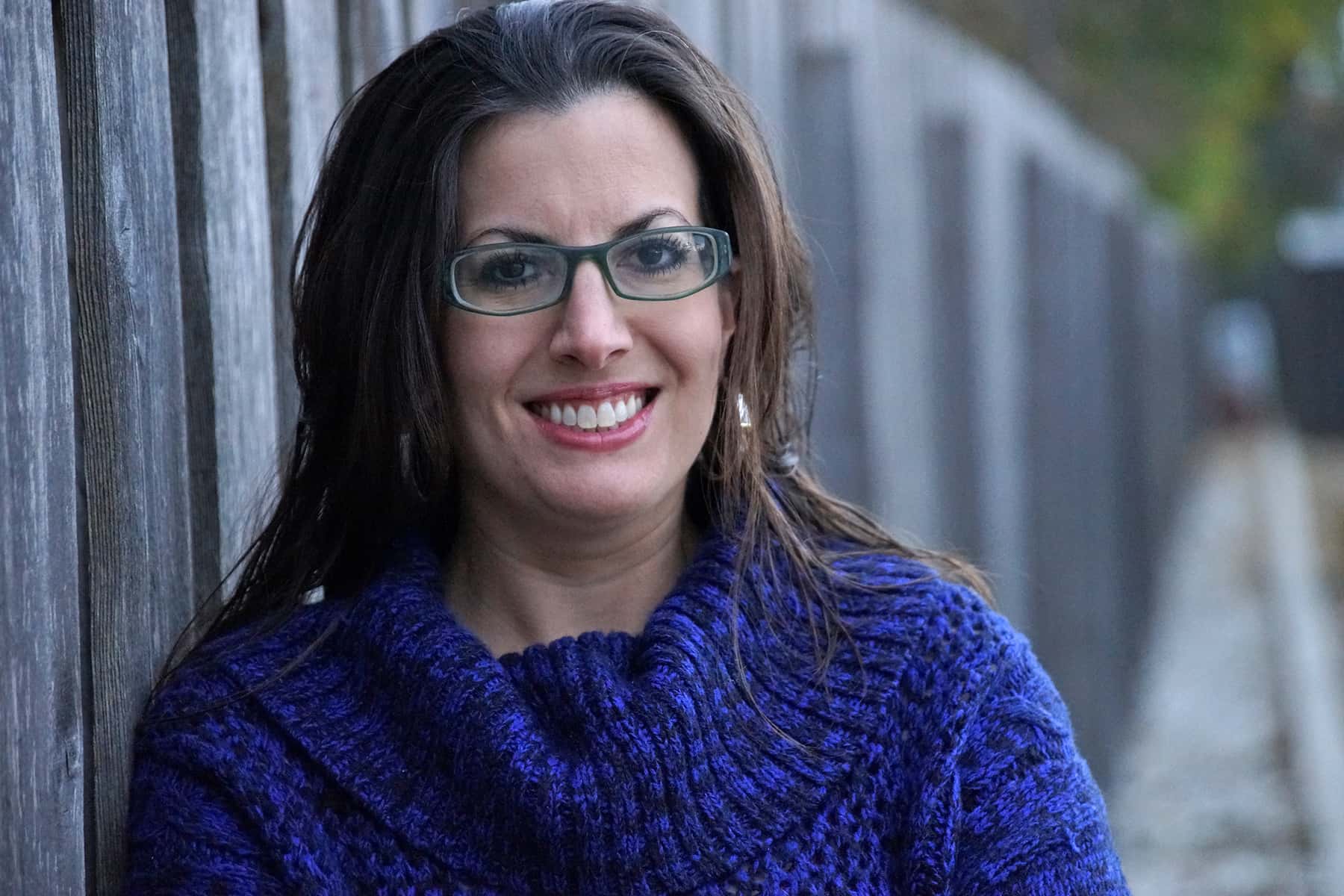
Over three decades ago, Greenheart Exchange, formerly known as Center for Cultural Interchange (CCI) began sending high school students to the United States from Spain.
Today, the nonprofit organization works with over 60 different countries around the world to facilitate cultural exchange opportunities. As a local coordinator for southeastern Wisconsin, Kerry Jude places Greenheart’s foreign exchange students and supporting their stay. The former educator uses her teaching experiences to help cultivate the youth she works with, planting the seeds of their future leadership abilities.
Q&A with Kerry Jude
Wisconsin Muslim Journal: What do you enjoy most about your work? And how do you manage the demands at so many levels?
Kerry Jude: There is a lot I enjoy about my work. It is hard to pick one aspect of my job that I like best. I really enjoy meeting a wide network of new people who I would have never come into contact with otherwise. I’ve made many new friends, acquaintances and contacts. I enjoy the challenge of finding new host families; it allows me to release my inner saleswoman. Most of all, I enjoy working with talented and creative young people who inspire me, make me laugh and keep me (mostly) up to date on new music. Managing the demands of the job can be challenging – especially since I am also a stay at home mom with a two-year-old daughter.
I try my best to stay on top of everyone’s needs early in the school year. In fact, I’m pretty sure I come off as pesky to some of the kids and hosts with my frequent, heavy contact at the beginning of the school year. I believe heavy, early engagement is crucial to having a successful exchange experience. It brings potential problems and situations to light right away. It also allows me to quickly build a rapport with my students and families so that they feel comfortable sharing difficulties with me instead of keeping them to themselves. I am always extremely busy during the months of August and September. By October, routines have been solidly established and my families and students are, for the most part, self-sufficient.
Wisconsin Muslim Journal: What motivates families to take on the responsibility of being a host? Do you have a memorable story about the experience a family had with their exchange student?
Kerry Jude: Families take on a student for a variety of reasons. Some of the most common reasons for hosting are interest in a foreign culture, providing a learning experience for everyone in the family, and forging life long bonds. Many families with children see hosting as a way to travel without having to leave their homes. It is way for middle- and working-class families, who make up the majority of our host families and who have limited access to international travel, to experience foreign cultures.
My host families have had many memorable experiences over the past few years. One of my favorite ones happened this past June. I opened my Facebook and saw the following post from a host mom who had just dropped her host daughter off at Mitchell International to return home: “The most difficult part of hosting an exchange student …..letting go. Good byes are not forever. Good byes are not the end. They simply mean I will miss you, till we meet again. Love you girl”
Wisconsin Muslim Journal: Can you share a “success story” about a Muslim student’s experience from studying in Wisconsin?
Kerry Jude: We have had many, wonderful Muslim students on our team. It was hard to pick just one successful story. A few years ago, a young lady from Bahrain named Fatima was placed in Beloit, WI. She was an absolute joy to work with. She was a phenomenal student. She quickly made friends at school and appeared to effortlessly adjust to life in her host family’s home (which is very difficult). She was such a stand out that she was invited to participate in a radio program in her community called “ask a Muslim.”
Wisconsin Muslim Journal: What is the most common culture shock that students have when arriving in Wisconsin from overseas?
Kerry Jude: Every student experiences culture shock in their own deeply personal, unique way. However, if I had to pick one recurring cultural difficulty it has to be food. It seems every year I have students who have trouble with the typical American diet. Typical complaints are that it’s too salty, too heavy, too processed, and there’s too much of it.
Wisconsin Muslim Journal: What is the biggest challenge a student faces in coming to Wisconsin in an exchange program? And what is the biggest obstacle for them upon arriving here?
Kerry Jude: For me, securing and formalizing placements in our public schools is the biggest challenge in Wisconsin. In many states, high schools are very liberal in their exchange student acceptance policies. They have no deadlines or limits as to how many exchange students they accept. High schools in Southeastern Wisconsin (where I have all of my experience), by contrast, tend to be very rigid in their policies. Almost all of them only accept a small number of exchange students every year.
Many Milwaukee area suburban high schools only offer two spaces a year. Additionally, our schools tend to have strict deadlines. Many will not accept placements after May 31st. Some high schools in the Milwaukee suburban area won’t even accept exchange students or will only accept AFS students because that is the only agency that has name brand recognition. It often takes leaving several voicemails and several emails to even prompt a response from one of our high schools.
Prospective host families may lose interest or the student they are interested in hosting can be placed by someone else during the time it takes me to get permission from the school. One of the biggest obstacles for students upon their arrival in our state is our climate. They always look forward to and anticipate picturesque, Hallmark card worthy snowy days. However, many of them do not anticipate our long months of sunless, gray days that can be damp and dreary. It wears on them throughout the winter.
Wisconsin Muslim Journal: How has the current anti-foreigner political climate affected your program, and participation from Muslim students?
Kerry Jude: For me, the anti-foreigner climate has actually helped stir interest within certain groups of our population. Many people see hosting a Muslim student as a way of thumbing their noses at the current administration’s policies. Families with children see hosting a Muslim student as a way of dispelling the stereotypical image of Muslims that has been manufactured by our mass media. Many also believe that hosting Muslims is a way of demonstrating that not all Americans buy into the anti-foreigner rhetoric that is currently permeating our political discourse.
I personally feel very motivated to put a lot of effort towards placing Muslim students because of our increasingly xenophobic society. In doing so, I feel that I am being proactive and not a quiet bystander. So far, Muslim students on my team have not encountered bullying or other forms of harassment at their schools as far as I know of. However, students who dress in accordance to their cultural and religious precepts have encountered rudeness and hostility while they are out and about in public. They are often stared at and receive poor treatment in restaurants. I had a student last year that was questioned and asked “to show papers” at a ticket booth at a local county fair. They have been told to “stop ISIS” and have been called terrorists while shopping for clothes. Overall, their experiences tend to be good. The majority of their interactions with Americans are positive.
Wisconsin Muslim Journal: What kind of problems do exchange students deal with, related to their ethnicity, faith, or country of origin in Wisconsin?
Kerry Jude: Non-white students often run into misconceptions, stereotypes and ignorance about their cultures. One year, I had a Brazilian student who was constantly questioned about what race he was at school. He listed it as one of the most irritating experiences he encountered during his exchange at the end of the year. I had a Japanese student who had to put up with ridiculous, stereotypical, and at times, embarrassing questions about her culture from her peers throughout the school year. Moreover, it is far easier to place white European kids in general. This holds true nationwide. Many European applications only spend a few weeks, a few days, or even a few hours in our database before a host family is found for them. Non-white student applications, by contrast, typically sit in the database for months.
Wisconsin Muslim Journal: Is there a common experience that most exchange students like about Wisconsin? Or a common condition, like the cold weather, they are less fond of?
Kerry Jude: I would say they are not particularly fond of the long, gray winters. A large number of students are amazed at our state’s natural beauty. Our forests, the Kettle Moraine region, and Lake Michigan never fail to impress.
Wisconsin Muslim Journal: What are some of the advantages or disadvantages that Wisconsin offers as a host state, compared to other Midwest states?
Kerry Jude: As alluded to earlier, our schools are often the biggest impediment to the placement process. It is hard for me to accurately attest to some of the advantages Wisconsin offers over other Midwestern states. I only have personal experience and knowledge of the advantages and disadvantages for exchange students and their hosts in Southeastern Wisconsin.
Wisconsin Muslim Journal: Is there a typical misperception that exchange students have before arriving in Wisconsin? And what is the usual learning curve for them to adapt?
Kerry Jude: Most students know nothing of Wisconsin upon arrival. When they think of the U.S., California and New York are prominent in their mental landscape. Everything in between those two places tend to be a giant blank space in their minds. Each student adapts to life here in their own unique personal way. I have yet to identify a uniform trajectory of adjustment that most exchange students follow.

